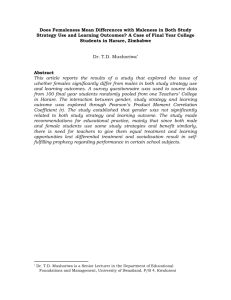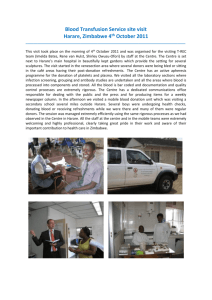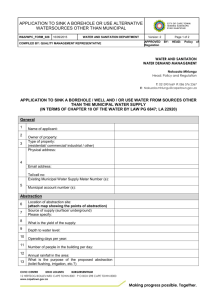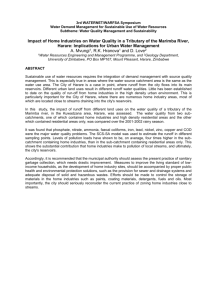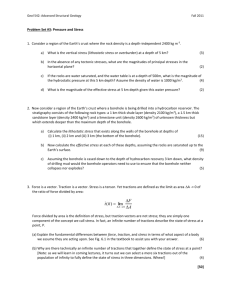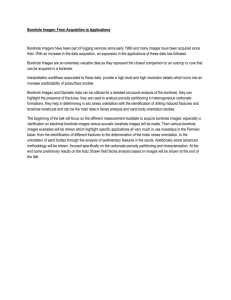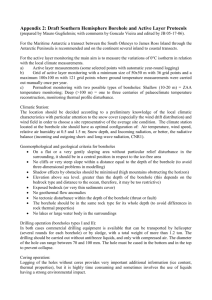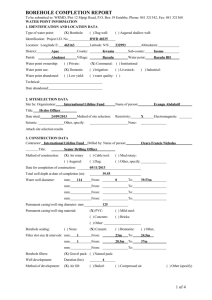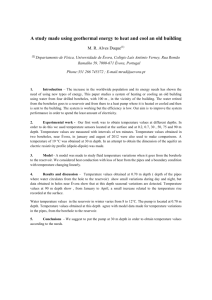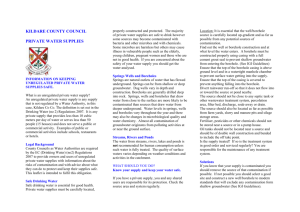Harare ground water - The Kubatana Archive Site
advertisement
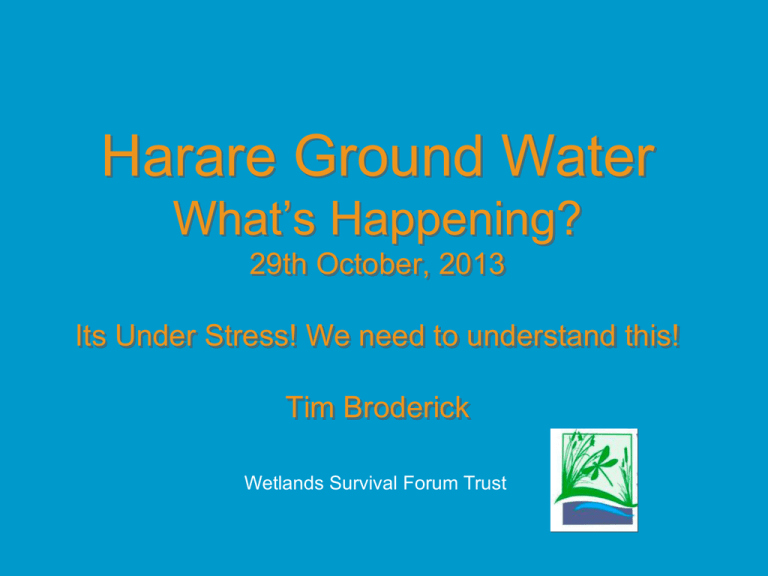
Harare Ground Water What’s Happening? 29th October, 2013 Its Under Stress! We need to understand this! Tim Broderick Wetlands Survival Forum Trust The Hydrological Cycle Ground Water Recharge and Movement Only 2 to 4% of annual rainfall goes to ground water. Harare needs 2 to 3 years of above average (+1000mm) rainfall to make a recovery. The Harare Greenstone Belt and Surrounding Granite The underlying geology is critical in the control, storage and transmission of ground water To Illustrate the Variability of Bedrock Weathering and slope influence Record Keeping is Essential Every borehole owner should retain information about their facility. This should include siting, borehole construction, test pump, pump and water analysis details. Monitoring records help you manage your abstraction - regular rest water levels and metered flow in particular. Legal requirements are the City Bye-laws that state that your borehole be no closer than 10m from a boundary, septic tank or conduit; a permit to drill a borehole through the Upper Manyame or Nyagui SubCatchment Council; followed by a permit to abstract ground water. Monitoring requirements will be stipulated in the permit. A quarterly monitoring fee of $10.00 will be charged. Drawdown due to Pumping Ground Water Mining This occurs when more water is abstracted from an aquifer than is recharged in any one season. The situation manifests itself in the lowering of water levels, pump suction and eventually the drying up of boreholes. To help alleviate this from happening and gain due warning •Read rest water levels in boreholes regularly. •Record daily rainfall. •Record the volume of water abstracted or the time elapsed during pumping. ACTION - Reduce water abstraction for essential uses only. Ground Water Monitoring Ground Water in Harare is under Threat? There are way in excess of 10 000 functional boreholes in Harare, mostly across the northern suburbs. Direct recharge is 2 to 4% of annual rainfall. Collective abstraction makes an impact manifested in seasonal drawdown, reduced water deliveries and borehole failure. The inconvenience is compounded during drought cycles or years with poor rainfall distribution. There is an urgent need for community awareness of the situation, and need for a drive towards self and community discipline in abstraction management of what is a fragile, albeit renewable resource. There is a new Statutory Instrument (90/2013) controlling the abstraction of bulk water, the permit conditions for which are stringent, particularly within urban limits. A new set of standards demand quality of service in all aspects of borehole drilling and construction. Regulations are imminent for the registration of all consultants, drillers and associated service providers. The need for discipline in all aspects of ground water management is underlined if we are to sustain this vital resource. The Highlands and Borrowdale vleis are central to the water cycle within Harare. They act as drainage sumps either side of the local watershed between the Gwebi and Chiripagura rivers. They encourage ground water recharge and prolong base flow to the streams. Artificial drainage or gullying reduces their effectiveness in this vital role. They are an essential part of our well being, and to the ground water regime that is under threat. They form part of the system and of our management plan. I commend you in your community spirit in helping to create general awareness of the need to monitor, manage and preserve our precious resource. Thank You
